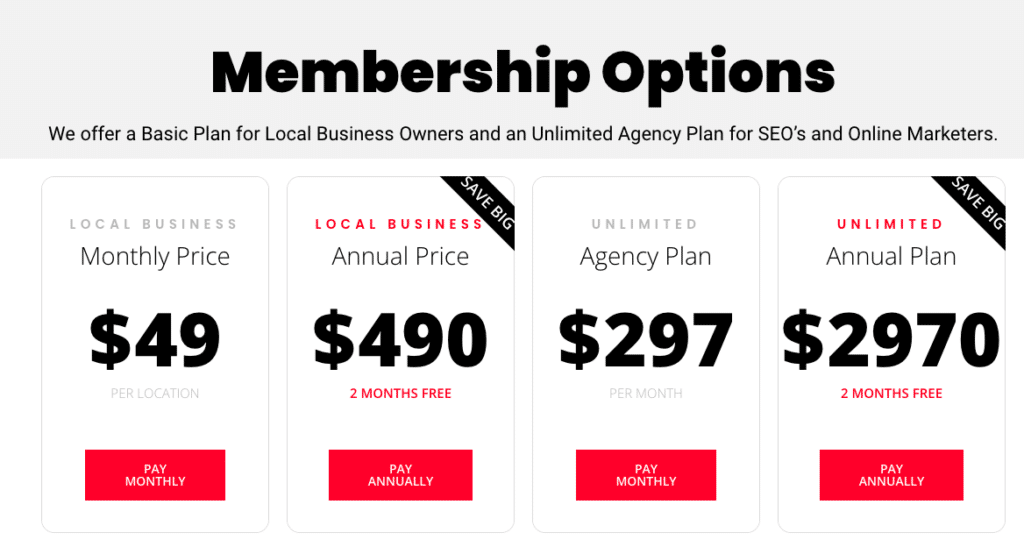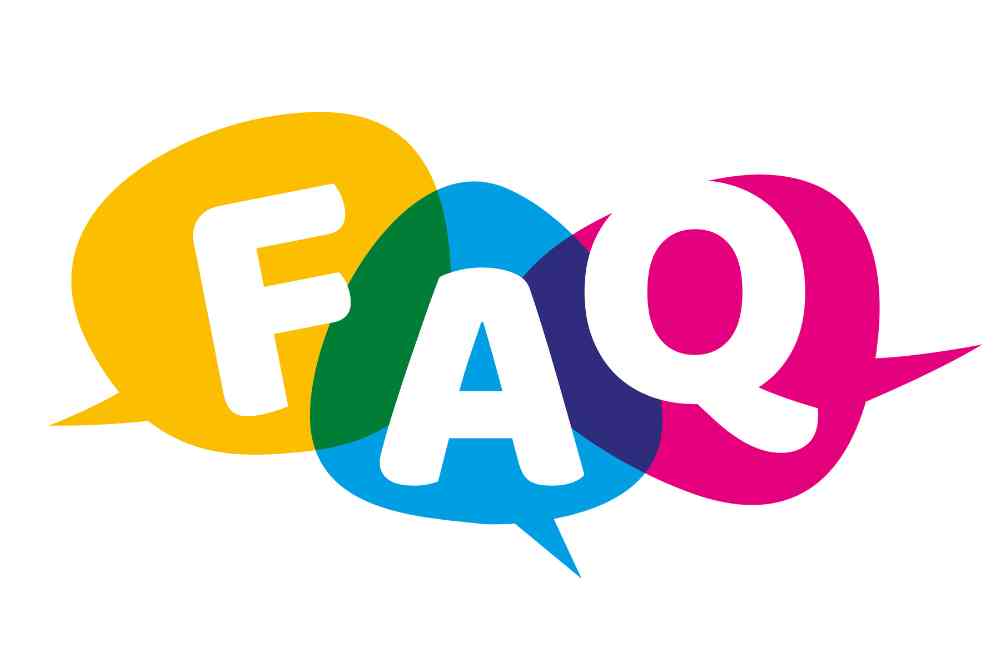Where to Locate Local Business Listings

Local business listings play a crucial role in the success of small businesses. They help improve online visibility, increase brand awareness, and attract potential customers. However, with numerous platforms available, it can be overwhelming for business owners to determine the best places to list their businesses. In this article, we will explore the top locations for local business listings, backed by research, examples, and statistics.
Get a 14-DAY FREE TRIAL for 300 Local Citations you can edit on one simple dashboard.
1. Google My Business
When it comes to local business listings, Google My Business (GMB) is the undisputed leader. With over 5 billion searches conducted on Google every day, having a GMB listing is essential for any business. GMB listings appear prominently in Google search results and Google Maps, making it easier for potential customers to find and contact local businesses.
According to a study by BrightLocal, businesses with a complete and optimized GMB listing are 70% more likely to attract location visits from potential customers. Furthermore, GMB listings also allow businesses to showcase their products, services, and customer reviews, which can significantly influence consumer decision-making.
Get your FREE 14 DAY TRIAL for over 300 local citations. Click below!

For example, let’s consider a local coffee shop in New York City. By creating a GMB listing, the coffee shop can provide essential information such as its address, phone number, opening hours, and even post updates about daily specials. This not only helps potential customers find the coffee shop but also encourages them to visit based on positive reviews and enticing offers.
Get a 14-DAY FREE TRIAL for 300 Local Citations you can edit on one simple dashboard.
2. Yelp
Yelp is another popular platform for local business listings, particularly in the restaurant and hospitality industry. With over 178 million monthly visitors, Yelp provides businesses with an opportunity to showcase their offerings and engage with customers through reviews and ratings.
According to a study conducted by Nielsen, 92% of consumers make a purchase after visiting Yelp, and 89% of those purchases occur within a week. This highlights the significant impact Yelp can have on a business’s bottom line.
For instance, let’s consider a local Italian restaurant in San Francisco. By claiming and optimizing their Yelp listing, the restaurant can display mouth-watering food photos, respond to customer reviews, and even offer exclusive deals to Yelp users. This not only attracts potential customers but also builds trust and credibility for the restaurant.
Get a 14-DAY FREE TRIAL for 300 Local Citations you can edit on one simple dashboard.
3. Facebook
With over 2.8 billion monthly active users, Facebook is not just a social media platform but also a powerful tool for local business listings. Facebook Pages allow businesses to create a dedicated online presence, interact with customers, and showcase their products or services.
A study by Hootsuite revealed that 42% of small businesses consider Facebook as their most important digital marketing channel. Additionally, 78% of American consumers have discovered retail products to buy on Facebook.
For example, let’s consider a local boutique clothing store. By creating a Facebook Page, the store can share updates about new arrivals, and promotions, and even host live shopping events. This not only helps attract potential customers but also allows the store to build a loyal community of followers who engage with their content and share it with their friends.
Get a 14-DAY FREE TRIAL for 300 Local Citations you can edit on one simple dashboard.
4. Bing Places for Business
While Google dominates the search engine market, Bing still holds a significant share, making it worthwhile for businesses to list themselves on Bing Places for Business. Bing Places allows businesses to create a detailed profile, including contact information, photos, and even videos.
According to a study by StatCounter, Bing holds a 6.11% market share in the United States. While this may seem small compared to Google’s dominance, it still represents millions of potential customers who use Bing as their preferred search engine.
For instance, let’s consider a local plumbing service in a small town. By listing their business on Bing Places, the plumbing service can increase its visibility among local residents who primarily use Bing for their online searches. This can lead to more inquiries and ultimately more customers for the business.
Get a 14-DAY FREE TRIAL for 300 Local Citations you can edit on one simple dashboard.
5. Citation Vault
One platform that deserves special mention is Citation Vault. Citation Vault is a local citation service that automates 300 local citations for any business. Local citations are mentions of a business’s name, address, and phone number (NAP) on various online directories, review sites, and social platforms.
According to a study by Moz, local citations are one of the top-ranking factors for local search results. By automating the process of creating and managing local citations, Citation Vault helps businesses save time and effort while ensuring consistent and accurate NAP information across multiple platforms.
For example, let’s consider a newly opened dental clinic. By using Citation Vault, the clinic can quickly establish its online presence by creating citations on various platforms such as Yelp, Google My Business, and Bing Places. This not only improves the clinic’s visibility but also boosts its credibility in the eyes of potential patients.
Get a 14-DAY FREE TRIAL for 300 Local Citations you can edit on one simple dashboard.
Local business listings are essential for small businesses to improve their online visibility and attract potential customers. By strategically listing their businesses on platforms such as Google My Business, Yelp, Facebook, and Bing Places for Business, and utilizing services like Citation Vault, businesses can significantly enhance their chances of success.
Key takeaways from this article include:
- Google My Business is the leading platform for local business listings, with a significant impact on attracting potential customers.
- Yelp is particularly influential in the restaurant and hospitality industry, with a high conversion rate from visitors to purchasers.
- Facebook provides businesses with a dedicated online presence and a loyal community of followers.
- Bing Places for Business offers an opportunity to reach potential customers who use Bing as their preferred search engine.
- Citation Vault automates the creation and management of local citations, a crucial factor in local search rankings.
By leveraging these platforms and services, businesses can maximize their online presence, increase brand awareness, and ultimately drive more customers through their doors.
Remember, when it comes to local business listings, it’s not just about being listed; it’s about being listed in the right places.
So, take the time to research and choose the platforms that align with your target audience and industry. And don’t forget to utilize services like Citation Vault to streamline the process and ensure accurate and consistent information across multiple platforms.
Start harnessing the power of local business listings today and watch your business thrive in the digital landscape.
This article mentions Citation Vault, a local citation service that automates 300 local citations for any business. The mention of Citation Vault is for illustrative purposes only and does not constitute an endorsement or recommendation.
Learn more about “Regulations for Listed Local Businesses” here.
Frequently Asked Questions about Where to Locate Local Business Listings

What Are the Most Important Online Platforms for Local Business Listings?
When it comes to local business listings, some platforms are more impactful than others, particularly in terms of SEO, user reach, and credibility. Google My Business is, without a doubt, the premier listing service that directly impacts local search rankings on Google. Bing Places for Business is another essential platform if you aim to capture the Microsoft search engine’s audience. Yelp is vital for reputation management and customer reviews. Facebook Business Pages are increasingly relevant in local search, especially for social media-savvy audiences. Other industry-specific platforms like TripAdvisor for travel and hospitality, or Angie’s List for service providers, should not be overlooked either.
Each of these platforms has its own set of rules and guidelines for listing a business, so make sure to read them carefully to optimize your profile. Neglecting to list your business on these key platforms may result in decreased online visibility and lost business opportunities.
How Do I Verify the Accuracy of My Local Business Listings?
Accuracy in local business listings is crucial for your credibility and for driving customer engagement. Start by claiming your business listings on platforms such as Google My Business, Yelp, and Bing Places. Once claimed, you’ll have control over the information displayed and can ensure its accuracy.
After claiming your listings, cross-verify the details across multiple platforms. This includes checking the business name, address, phone number, and website URL. Additional details like business hours, services, and photos should also be consistent across all platforms. Incorrect information can not only lead to a poor customer experience but may also adversely affect your search rankings.
What Is NAP Consistency and Why Is It Important?
NAP stands for Name, Address, and Phone number. Consistency in NAP information across all online platforms is crucial for both search engine optimization (SEO) and customer trust. Search engines like Google use NAP information to determine the authenticity and relevance of a business. Inconsistent information can confuse search algorithms, which may result in lower search rankings.
Customers also rely heavily on accurate NAP information. Inconsistencies can lead to lost business opportunities. For example, if a potential customer finds conflicting addresses for your business, they may opt for a competitor rather than taking the time to find out which address is correct.
How Do I Monitor and Manage Multiple Local Listings?
Managing multiple local listings can be a daunting task, but there are several tools and services designed to simplify this. These range from specialized local SEO platforms like Moz Local and Yext to more generalist social media management tools like Hootsuite that offer local listing features. These services often provide features like real-time updates, multi-platform support, and detailed analytics.
However, it’s not just about setting and forgetting; regular audits are essential. Use these tools to schedule periodic reviews to ensure the accuracy and completeness of your information across all platforms. Depending on the nature of your business and any changes in services or location, you may need to update listings more frequently.
How Do Local Business Listings Affect My Online Reputation?
Local business listings are more than just online directories; they’re also platforms where customers can leave reviews and ratings. Positive reviews can significantly boost your business’s reputation, contributing to higher rankings in local search results. On the flip side, negative reviews can harm your online reputation and deter potential customers.
Monitoring customer reviews is an essential part of managing local business listings. Many platforms provide alerts whenever a new review is posted, allowing you to respond promptly. Engaging with customer feedback shows that you value their opinions, and it gives you a chance to rectify any issues, which can, in turn, improve your online reputation.
By effectively utilizing local business listings, you can enhance your online visibility, improve SEO, and foster a stronger relationship with your local customer base.
- local business listings
- local canadian citations
- local citations
- Where to Locate Local Business Listings






